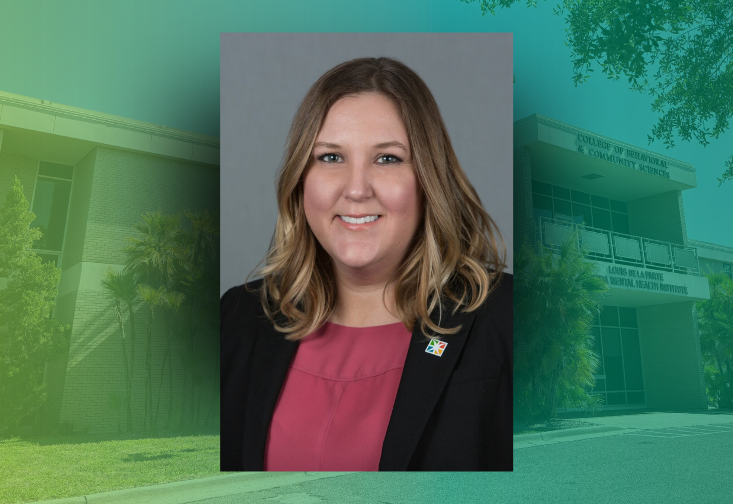Courtney L. Whitt, PhD, a leader in providing integrated primary care within traditionally underserved populations, will join the Florida Center for Behavioral Health Workforce at the University of South Florida (USF) as executive director in October.
A licensed psychologist, Whitt most recently served as the director of behavioral health for the Healthcare Network, a federally qualified health center in Immokalee. There, she was a champion for the evolution of an effective and sustainable model of behavioral health integration and team-based care. Whitt worked with community partners and stakeholders, along with organizational leadership, to oversee integrated primary care behavioral health services for nearly 50,000 people.
Prior to joining the Healthcare Network, Whitt completed her psychology fellowship at Salud Family Health Centers in Fort Lupton, CO, another federally qualified health center, where she served low income, uninsured, Latino/a, immigrant, and rural/migrant populations. Prior to that, she completed a predoctoral integrated care psychology internship at Wayne State University School of Medicine in Detroit. She has also served as a clinic coordinator for the Institute for Individual and Family Counseling at the University of Miami and as program coordinator for the Thelma Gibson Health Initiative in Coconut Grove.
“Workforce challenges have been one of the greatest threats to equitable and timely access to mental health and substance use intervention and services across systems and the continuum of healthcare,” said Whitt. “They have undermined creative solutions and other innovations that would otherwise have the potential to profoundly and positively impact population health. As an advocate for addressing these workforce shortages, I look forward to exploring further opportunities for collaborative efforts to address the behavioral health workforce crisis in our state.”
Whitt is currently the behavioral health chair of the Florida Association of Community Health Centers Clinician Advisory Council, a role she has held since 2022. She is also a member of the Collier Coalition for Healthy Minds, a board member of the Collier Resource Center, a leader on the Collier County Community Health Improvement Plan Behavioral Health Workgroup, and a partner on the Naples Children & Education Foundation Beautiful Minds Initiative. Previously, she has been involved with the Collier County Community Health Improvement Plan Pediatric Obesity Workgroup and Future Ready Collier.
In 2023, Whitt was awarded the Jessie Trice Outstanding Clinician Award from the Florida Association of Community Health Centers. This award recognized Whitt for her “outstanding commitment in providing services for the underserved, dedication to continuous quality improvement, evidence-based medicine, health care innovation, willingness to ‘go the extra mile’ for their patients and to work collaboratively with peers to ensure the best possible outcomes for all patients.”
Nationally, Whitt is also a member of the American Psychological Association and the Collaborative Family Healthcare Association.
Whitt earned a doctorate in counseling psychology from the University of Miami in 2015. Her Master of Science in Education in mental health counseling and undergraduate degree in psychology are also from the University of Miami.
“Given Dr. Whitt’s extensive experience in the field of behavioral health, deep involvement in the community, and dedication to the well-being of all Floridians, I am certain she will lead the center well as it makes important contributions to the state,” said Julie Serovich, PhD, dean of the USF College of Behavioral and Community Sciences.
The establishment of the Florida Center for Behavioral Health Workforce and the investment from the state to operate it were components of Senate Bill 330. Sponsored by Sen. Jim Boyd and Rep. Sam Garrison, this bill was included in the Live Healthy legislation package signed by Gov. Ron DeSantis in March.
Under the leadership of Whitt, the center aims to more deeply understand the factors driving the state’s behavioral health workforce shortage and identify ways in which Florida can recruit and retain these essential professionals, thereby increasing access to behavioral health care for those who need it.
